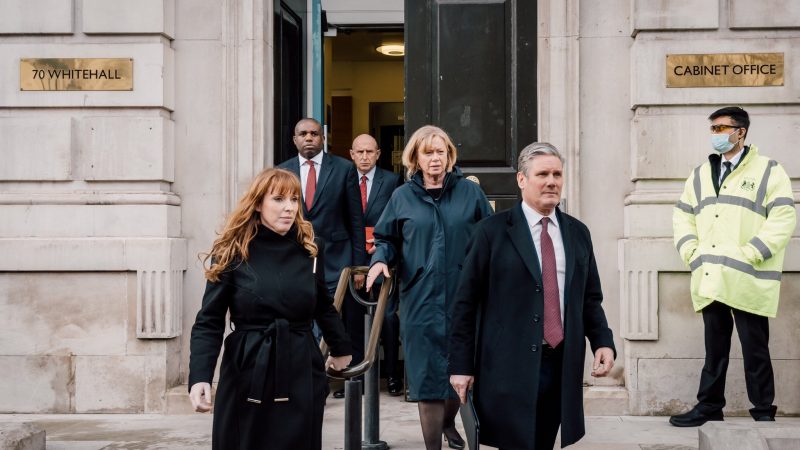
The final policy document signed off by Labour’s National Policy Forum is being distributed to members of the party’s policymaking body and its ruling national executive committee today, setting out the party’s most up-to-date policy platform.
The document builds on the policy programme compiled by the party earlier this year, following amendments proposed by members of the NPF. The final document was endorsed by the NPF at its meeting in Nottingham in July.
NPF chair Anneliese Dodds described the final document as a “serious, credible and ambitious policy programme to enact the change that people are crying out for”.
The Labour frontbencher added: “Labour is a party transformed under Keir Starmer, with a policy programme built on the rock of economic stability, our plan for growth and reform of public services. Only Labour can give Britain its hope, its optimism and its future back.”
The final document will be voted on by delegates at the party’s annual conference in October. Once voted on at conference, the document will then inform the party programme, from which the party’s next manifesto is drawn before being signed off at the ‘Clause V’ meeting.
The party does not plan to publish the document, however, as it was only created for internal party distribution.
Plans fully funded and ‘built on stability, growth, and public sector reform’
A party source said Labour’s “overriding priority” during the NPF process was to develop a programme that “serves the British people”, arguing that the final document “shows that we have delivered upon that”.
They said the document contains no new commitments that increase spending or raise tax beyond what has already been set out by the shadow cabinet.
They also said plans were “built on the rock of economic stability, our plan for growth and reform of public services”, with all plans fully funded.
“This is critical as we lay the groundwork for the next manifesto, which will set the foundations of strong public finances and then build a better future on top of them,” they added.
Labour line on the triple lock
Notable elements of the document though, not included in the draft earlier this year, include a statement on the triple lock which says it “remains an important tool in ensuring older people are given security and dignity of a good pension at the end of their working life.”
It notes the last Labour government “legislated for the earnings link in the state pension, ensuring increases were written into law. The Tories broke their promise on the earnings link, and it was Labour who pressured Tories to honour the triple lock the following year.”
Labour has faced questions recently about its commitment to the guarantee about rising pension rates. The document continues: “A Labour government will protect pensioners from the cost-of-living crisis and ensure that older people have security in retirement”.
It highlights the importance of decent occupational pensions, but adds: “We will stand by increases to the state pension to protect pensioners from the cost of living crisis. Labour recognises the triple lock in how it has protected pensioners’ incomes and providing certainty in retirement.
“That is why Labour has defended the triple lock when the Conservatives have sought to break their promises.”
New deal for working people
The source also told LabourList that new revisions to the NPF document included adding “detail to strengthen and clarify the agenda” on the party’s new deal for working people. Changes are said to help “provide businesses and workers the certainty they need in many areas”.
Angela Rayner recently rejected claims that the party’s proposals to strengthen workers’ rights had been watered down, arguing that its plans represent the “biggest levelling up of workers’ rights in decades”.
But there were reports of tensions emerging at the NPF meeting between the party leadership and affiliated unions over several issues, including equalising the minimum wage for under-18s, a £15 national living wage and equal pay for women.
Unite – Labour’s largest union funder – said it was unable to back the final document in full in a statement “as it clearly crossed the union’s red lines”, including around collective bargaining, workers’ access to unions and zero-hours contracts.
Some unions were publicly more positive about the meeting, however, with a GMB spokesperson saying the union’s participation in the NPF had “delivered significant advances for working people”, while Usdaw general secretary Paddy Lillis described the meeting as “productive”.




More from LabourList
‘The hope that kills you’: Reflections from the final day in Gorton and Denton
MPs, union leaders and organisations react to ‘bruising’ Gorton and Denton result
A gory night for Labour